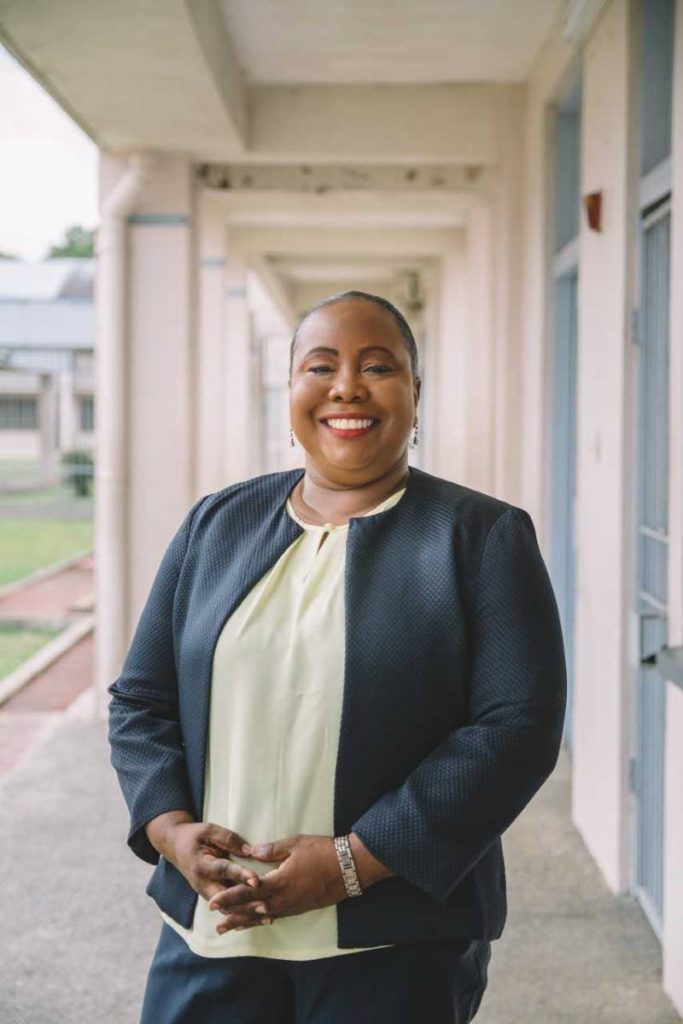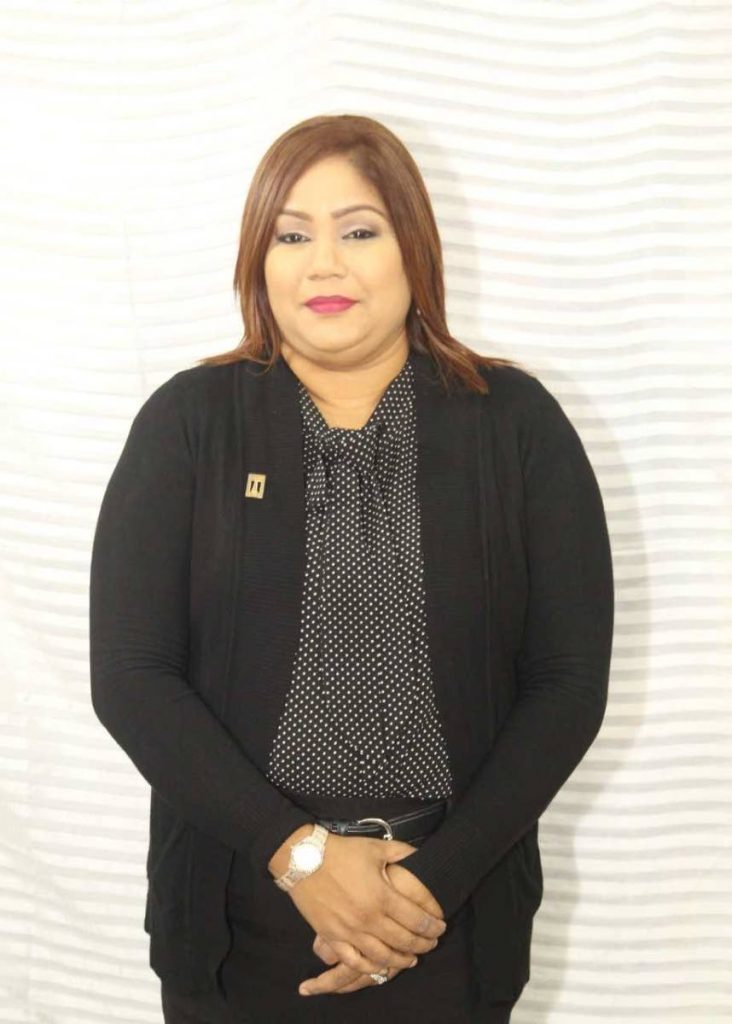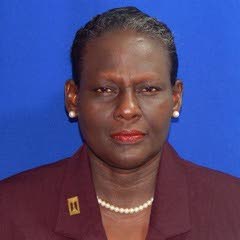Woman president for TTUTA

And a woman shall lead them.
For the first time in its 40-year history, the TT Unified Teachers’ Association (TTUTA) will have a female president at its helm after the union’s executive election on October 22.
In fact, the association’s top post is being contested by three women: Upper Carapichaima Presbyterian Primary School principal Nirmala Chinebas-Dindial; Eastern Boys’ Government School principal Jemima Riley; and senior teacher at (St Charles) Tunapuna Girls’ RC School Antonia De Freitas. The winner will serve for a period of three years.
TTUTA is led currently by Lynsley Doodhai, who won the presidency as an independent candidate in 2016.
He was previously the association’s second vice-president under former leader Devanand Sinanan. He is no longer eligible for election.
The women, who spoke to Sunday Newsday in separate interviews, said they decided to contest the election to bring about much-needed change within the education sector.
For Chinebas-Dindial, who unsuccessfully contested the position in the 2016 TTUTA election, the sector is being hampered by indiscipline, a lack of human and physical resources and a lack of proper implementation strategies for sector’s weighty curriculum.
She also believes teachers and students, key players in the sector, are being left out of the consultative process.
Team TNT candidate

Chinebas-Dindial, who leads the Team TNT slate, said the pressures associated with outstanding settlement of negotiations and poor working conditions are also facilitating low morale among teachers.
She said a resolution to these issues can only be accomplished through proactive action with the Ministry of Education and other stakeholders such as the National Association of Principals and National Parent-Teacher Association, using empirical data as the base from which to move forward.
“This proactive action must be firm, consistent and rapid,” Chinebas-Dindial told Sunday Newsday.
“It is high time that teachers are recognised for the important role they play in shaping the minds of our children who are our future leaders.”
Saying meetings with the Ministry of Education and Chief Personnel Officer must be pursued vigorously, she said the association’s membership must always be apprised of developments.
“Personnel and funding must be available if any of these issues are to be addressed.”
Chinebas-Dindial, who serves on TTUTA’s central executive, general council and conference of delegates, believes her knowledge, skills and experience in community and religious-based bodies, qualifies her to represent the association at the highest level.
“Engagement in all these different roles has equipped me with the skills, knowledge and expertise to perform the duties of president. I am willing and able.”
De Freitas said issues affecting the terms and conditions of teachers, such as the upgrade of persons to appointments, must be addressed.
“Such matters affect moral and productivity,” she said.
Team Renaissance candidate
De Freitas, leader of Team Renaissance, also believes issues such as curriculum reform and implementation and resource allocation also affect the capacity of teachers to adequately meet the needs of students.
To address these pressing issues, De Freitas said the new TTUTA president must have a working knowledge of both industrial relations and matters in the sector, areas in which she is well-versed, having served as first vice-president in the Devanand Sinanan-led TTUTA from 2013 to 2016.
She said in this way, effective collaboration with fellow officers would ensure resolution of issues in a timely manner.
Further, De Freitas said as president she would promote the aims and objectives of the association through public relations objectives and strategies.
“To this end, as president, it will be my responsibility to ensure meaningful and productive consultation and collaboration with stakeholders, including TTUTA members, to address matters.
Information on decisions and matters affecting teachers will be disseminated to members on a consistent basis.
While a speedy settlement of outstanding salary negotiations is a priority for De Freitas if she becomes president, she is also concerned with changing the organisation’s identity to one which enjoys a more positive outlook. She has given herself three months to achieve this task. Aside from establishing opportunities for teachers to benefit from various partnerships with collaborators by the end of her first year in office, the Tacarigua native, within her first six months, also wants TTUTA to enjoy prominence on as many communications platforms as possible.
One of her first objectives, if elected, though, will be to encourage social dialogue to improve relationships between TTUTA’s internal and external stakeholders.
Regarding teaching and learning, De Freitas said: “The most important stakeholder in the education system is the student. I deliver the curriculum in a manner to meet the students wherever they are.”
De Freitas said she decided to contest the election to address the high levels of malaise and dissatisfaction which many teachers are experiencing due to the lack of proper representation.
“Teachers were feeling isolated due to limited communication between the leadership and the membership on various matters. For quite some time there has been a disconnect between the leadership of the union and the ordinary members in schools. “
“I am confident that with my experience and qualifications I can support my fellow officers in our quest to reconnect the leadership of TTUTA with the membership.”
Riley runs again

For Riley, the ideal of an exceptional school is being stymied by a lack of appreciation for he contribution of teachers and principals.
“Presently, teachers’ work adds value to our education system, but teachers are not revered for their contribution to the nation. This does not motivate teachers,” she said.
Riley also believes the education system is not understood.
“The Ministry of Education measurement that is used to measure schools make some schools appear unproductive and less productive. They use examinations and assessments performances to discuss the output of the system and schools are categorised with this data.”
Riley believes this action requires an immediate review because by the Ministry of Education’s officials do not have real data for the output of the education system.
She added: “Our education system is doing great work. Principals and teachers know about the successes of their weaker students, who with the aid of teachers and time, have gone beyond expectations and became productive members of the society.
“Many students who made low marks in the Secondary Entrance Assessment have swiftly gone through their studies into degrees and productive careers. Our education system facilitates this transition but it is not understood or measured.”
Riley said the data needs to be gathered to allow for a better understanding about the quantum of work being done by schools, some of which operate with limited resources.
“Together teachers are holding up this country.”
Riley also observed parents are not mandated to actively engage in school business.
Saying this is a major shortcoming of the system, Riley regarded schools as free daycare centres for many families.
“These parents never check schoolwork and want the child to do well at school. They never visit to deal with their child at school.”
She said this trend is often reflected in negative social media publicity.
“Social media is the place where hardworking teachers see and read bitter education social commentary about teachers’ performance at work. This does not motivate teachers.”
Riley, who also contested unsuccessfully the post of TTUTA president in 2016, said legislation is needed urgently to make parents active participants in the education of their children.
The principal also observed some youths are disinterested in school because they are aware of what she called the parallel economy.
“School is not so important because there are other ways to enrich themselves with education. These children come to school and share their stories. Sometimes those students can derail the learning of their entire class as they challenge the authority of school leaders.”
She said many schools are being confronted with this problem.
Riley also complained too many education decisions are made in rooms with “less robust and less experienced education contributors.”
She said: “Teachers and principals are the professionals on the ground. They, through TTUTA participate in the decision-making that guided and strengthened our education policy planning and implementation and assessment. Today, teachers and principals are stymied because in too many instances consultations have been replaced by less collaborative decision-making.”
Saying the education policy must be developed based on TTs needs, Riley insisted all parts of the document must connect.
She said since 2000, education policies were not developed based on the country’s needs.
“We had a policy paper from 1997 to 2003 that was ignored in favour of international and regional initiatives that were thrust upon our teachers and principals. Some of these continue to plague our schools.”
These include overcrowded Form One secondary classes, the downgrade of secondary school by the placement of pupils who could not read, the loss of technical-vocational training in the secondary school and the removal of post primary school support for primary school students.
“Some of these continue to interrupt the work life of teachers and the quality of school life available to students.”


Comments
"Woman president for TTUTA"